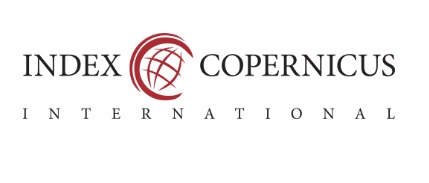The US government’s use of soft power to combat terrorism: A strategy of political communication in Iraq
Abstract
Aim: TThis research paper evaluates the effectiveness of American political communications abroad in the fight against terrorism through the lens of soft power. Furthermore, this article explores the government’s potential media use on the front lines of the anti-terrorist struggle. It also discusses the various definitions of soft power and offers advice to any leader concerned about the potential damage to their country’s international standing due to a failure to employ such strategies.
Methodology: A case study methodology was used for the data collection and analysis in this study, indicating that it is a qualitative investigation. This paper thoroughly examines the case study of the Iraq invasion. The study focused on the two most widely read US news outlets. Because of their prominence in reflecting the views of the two largest political parties in the United States, the Democrats and the Republicans, CNN and Fox News are chosen.
Findings: Summary of the case study results on the use of soft power in the 2003 invasion of Iraq following the September 11, 2001, terrorist attacks. Research results on how specific countries and media outlets use communication to advance soft power are also included.
Implications/Novel Contribution: The research paper has successfully provided data on the adverse effects of using hard power, as seen in the fallout from the invasion of Iraq in the years 20012005. This was an act of vengeance for the attacks on September 11 that rocked the United States to its core. Discusses the effectiveness of employing soft power in combating terrorism.
References
Blanton, H. (2003). Poll: Steady support for action against Iraq. Retrieved from https://fxn.ws/3yJmY2C
CNN. (2001). Transcript of president Bush’s address. Retrieved from https://cnn.it/3h20owa
CNN. (2003a). Bush sends Iraq war letter to congress. Retrieved from https://cnn.it/3DFIjhr
CNN. (2003b). Chirac: Iraq war undermined U.N. Retrieved from https://cnn.it/3jGfRnk
CNN. (2003c). Shock and awe campaign underway in Iraq. Retrieved from https://cnn.it/3DKt2M7
CNN. (2003d). What would war with Iraq cost? Retrieved from https://cnn.it/2VdcevP
Coombs, S., & Mitchell, J. (1986). International cultural relations. London, UK: Allen & Unwin.
Erickkson, J., & Norman, L. (2011). Policymakers have not understood the significance or usefulness of ’soft power in U.S. foreign policy. Review of International Studies, 37(1), 417-436.
Fox News. (2002). Is the war on terrorism winnable? Retrieved from https://fxn.ws/3mXdi2v
Fox News. (2003). International support scarce for iraq war. Retrieved from https://fxn.ws/2Yod7D8
Fox News. (2004). FBI warns of eco-terrorism threat. Retrieved from https://fxn.ws/38zL0CO
Fox News. (2017). War on terror strategy. Retrieved from https://fxn.ws/3jDAhO2
Henry, F. A. (2005). Hard and soft power: The paradox of "winning the war of ideas" in the 21st Century. U.S. A. war college. Retrieved from https://bit.ly/3DGwKGC
Ilgen, T. (2006). Hard power, soft power, and the future of transatlantic relations. Aldershot, UK: Ashgate.
John, S., Domke, D., Coe, K., & Graham, E. (2004). From september 11 to saddam: George w. bush, strategic communications, and the “war on terrorism.”. In Annual Meeting of the International Communication Association, New Orleans, LA.
Kai, J. (2014). Using ’internal soft power’ to fight terrorism in China. Retrieved from https://bit.ly/2WQn8Z3
Kroenig, M., McAdam, M., & Weber, S. (2010). Taking soft power seriously. Comparative Strategy, 29(5), 412-431. doi:https://doi.org/10.1080/01495933.2010.520986
Lieber, R. (2008). Foreign policy. Aldershot, UK: Ashgate.
Mattern, J. B. (2005). Why ‘soft power’ isn’t so soft:representational force and the sociolinguistic construction of attraction in world politics. MIllenium Journal of International Studies, 33(6), 583-612. doi:https://doi.org/10.1177/03058298050330031601
McClory, J. (2016). The soft power 30. Retrieved from https://bit.ly/3jIHnkq
Moody, M. (2006). Remembering 2003. Retrieved from https://fxn.ws/3tdIRGh
Nye, J., & Joseph, S. (2008). Public diplomacy and soft power. The Annals of the American Academy of Political and Social Science, 6(16), 94-109.
Nye, J. J. S. (2004). Soft power: The means to success in world politics. California, CA: Public affairs.
Nye, J. S. (2009). Get smart: Combining hard and soft power. Foreign Affairs, 88(4), 67-90.
Pamment, J. (2015). Media influence, ontological transformation, and social change: Conceptual overlaps between development communication and public diplomacy. Communication Theory, 25(2), 188-207. doi:https://doi.org/10.1111/comt.12064
Parmar, I., & Cox, M. (2010). Soft power and US foreign policy. Hoboken, NJ: Taylor & Francis.
Phillips, L. (2016). Us vs Is: The role of the visual image in enlisting and renewing support for armed groups in Iraq. International Journal of Contemporary Iraqi Studies, 10(3), 241-261. doi:https://doi.org/10.1386/ijcis.10.3.241_1
Ping, X., & Li, W. (2015). The china model vs. american soft power: Going global and peaceful. Retrieved from https://bit.ly/2VilrmM
Prasad, L. S. (2017). Political network can more influential than other networks for economic awareness: A case study of Nepalese village. International Journal of Humanities, Arts and Social Sciences, 3(6), 249-263. doi:https://doi.org/10.20469/ijhss.3.20002-6
Raman, B. (2009). Use of soft power in counter-terrorism. Retrieved from https://bit.ly/3DNrCAK
Smith, G. S. (2010). Soft power in an era of us decline: In soft power and U.S. foreign policy. Retrieved from https://bit.ly/38FtNYu
Taylor, P. M. (2010). Public diplomacy and the information war on terror. London, UK: Routledge.
Zaharna, R. S. (2007). The soft power differential: Network communication and mass communication in public diplomacy. New York, NY: Sage Pblications.
Zainal, Z. (2007). Case study as a research method. Jurnal Kemanusiaan, 5(1), 56-80.

This work is licensed under a Creative Commons Attribution-NonCommercial 4.0 International License.












.png)










